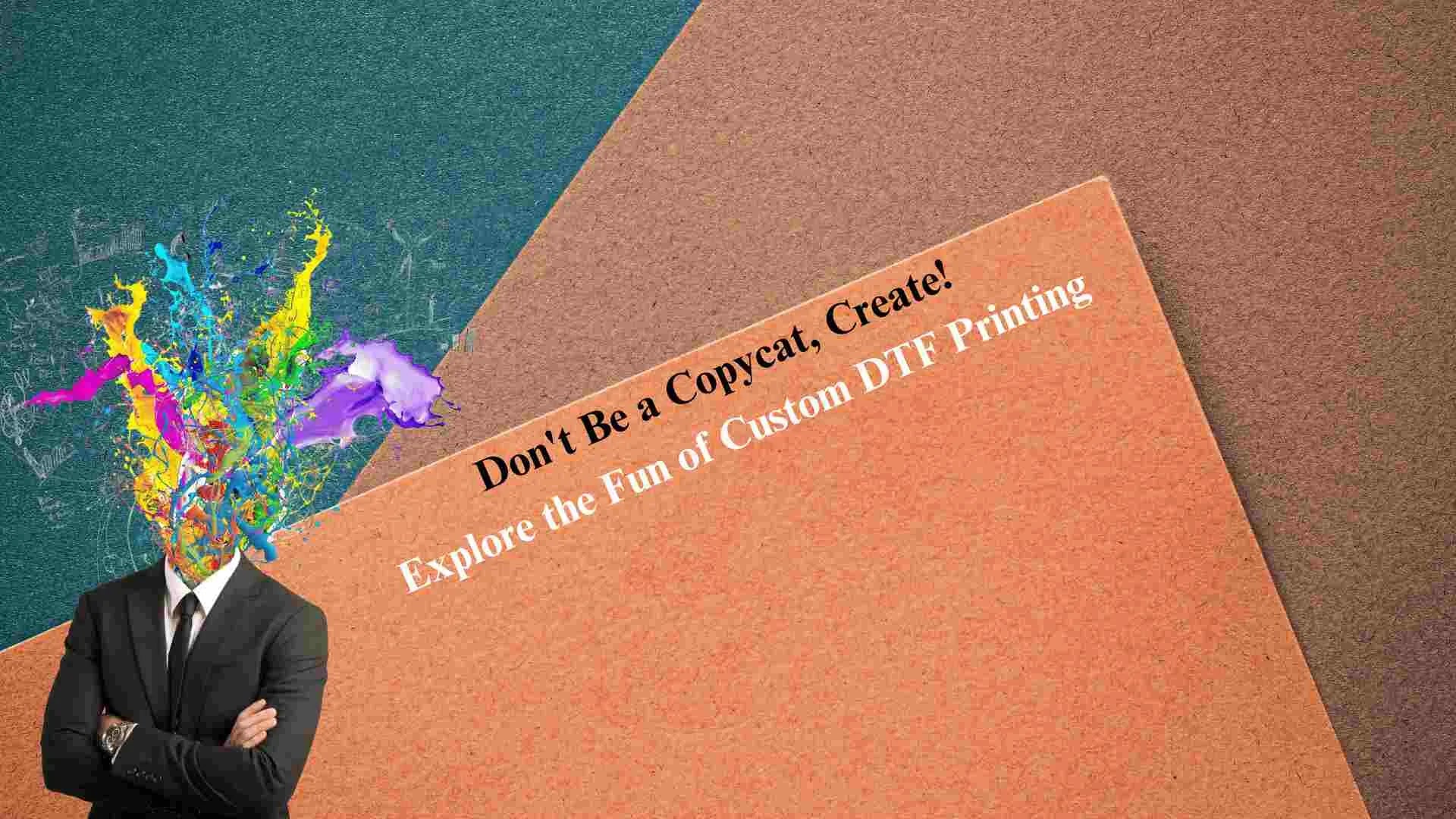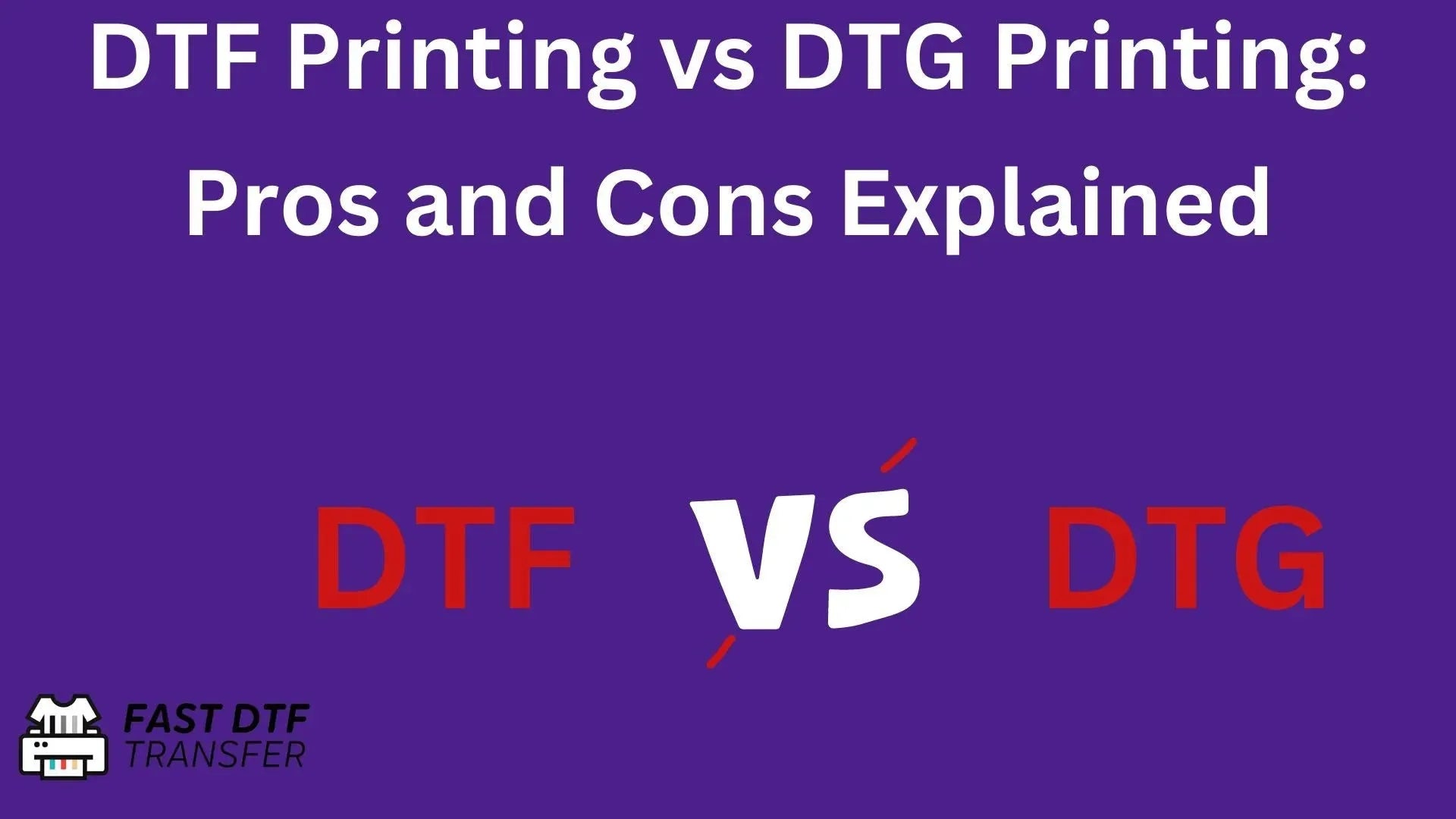DTF vs Screen Print: Which Printing Method is Best for You?
DTF vs Screen Print: Which is Right for You?
Choosing between Direct to Film (DTF) and screen printing for apparel and products can be tough. Both have their perks, and the right choice depends on what you need. We'll explore the differences to help you pick the best method for your project.
What is DTF Printing?
DTF printing is a new tech that's becoming popular. It prints designs on a special film, then transfers them to your product with heat. This method is versatile and produces high-quality results.
Benefits of DTF Printing:
- Versatility: DTF works on many materials, like fabrics and plastics.
- Vibrant Colors: The prints are vibrant and detailed, thanks to high-resolution printing.
- No Minimum Order: You can print just one piece, perfect for custom or small orders.
What is Screen Printing?
Screen printing, or silk screening, is a classic method. It uses a stencil to apply ink onto the product. This method is durable and cost-effective for large orders.
Benefits of Screen Printing:
- Durability: The ink is embedded in the fabric, making it wear-resistant.
- Cost-Effective for Bulk Orders: The cost goes down with more prints, ideal for large orders.
- Rich Color Options: Screen printing offers rich, opaque colors that last long.
DTF vs Screen Print: Which is Better?
Let's compare to help you decide.
- Quality and Durability
DTF Printing:
- Durability: DTF prints are durable but might not last as long as screen prints. They hold up well in regular washing but may fade with heavy use.
- Quality: DTF prints are excellent, with vibrant colors and fine details. It's great for designs with many colors and gradients.
Screen Printing:
- Durability: Screen prints are very durable. The ink is absorbed into the fabric, resisting fading and cracking.
- Quality: Screen printing also offers high-quality results, especially for designs with fewer colors. It's best for bold, solid colors and simple designs.
- Cost
DTF Printing:
- Initial Cost: The initial cost for DTF printing is lower. It's a good choice for small batches and custom prints.
- Cost per Item: The cost per item stays the same, whether you print one or a few pieces.
Screen Printing:
- Initial Cost: Screen printing has a higher setup cost due to the need for screens and equipment.
- Cost per Item: The cost per item goes down with larger orders. It's more cost-effective for bulk orders.
- Versatility and Material Compatibility
DTF Printing:
- Versatility: DTF printing is versatile. It works on a wide range of materials, including fabrics, plastics, and more.
- Material Compatibility: It works well on both light and dark fabrics, offering flexibility in your product range.
Screen Printing:
DTF vs Screen Print: Which Printing Method is Best for You?
Choosing between DTF and screen printing depends on several factors. These include the size of your order, the materials you’re working with, and your budget. Each method has its own strengths and weaknesses.
Quality and Durability
DTF Printing:
- Quality: DTF printing offers vibrant, detailed prints that last long. It works well on various materials.
- Durability: The prints are durable and last long, even with washing and wear.
Screen Printing:
- Quality: Screen printing also produces high-quality prints. It works well on fabrics and other materials.
- Durability: The prints are durable and last long, making them great for wearables and other items.
Cost-Effectiveness
DTF Printing:
- Cost: DTF printing is cost-effective for small orders. It has lower setup costs and no minimum order.
- Material Compatibility: It works well on various materials, including fabrics and ceramics.
Screen Printing:
- Cost: Screen printing is more cost-effective for large orders. It offers a lower cost per unit.
- Material Compatibility: It works well on fabrics and other materials, including ceramics and glass.
Versatility
Versatility: Screen printing is versatile but mainly used on fabrics. It might not work well on non-fabric surfaces.
Material Compatibility: It’s best for light-colored fabrics. Special inks can be used for darker colors.
- Turnaround Time
DTF Printing:
- Speed: DTF printing is quick for small orders. You can get your prints done and shipped out fast.
- Setup Time: The setup is quick, making it ideal for urgent or small-scale projects.
Screen Printing:
- Speed: Screen printing takes longer to set up, especially for complex designs or large orders.
- Setup Time: The setup process is time-consuming, but the printing itself is fast once ready.
What’s the Difference Between DTF and Screen Print Transfers?
DTF Transfers:
- Process: DTF transfers print your design onto a special film, then use heat to transfer it onto the product.
- Application: Ideal for detailed designs and custom prints on various materials.
Screen Print Transfers:
- Process: Screen print transfers create a stencil and apply ink to the transfer paper, then heat-press it onto the product.
- Application: Great for bulk orders and designs with solid colors.
Is DTF Cheaper Than Screen Printing?
DTF Printing: Generally, DTF printing is cheaper for smaller quantities. It has lower setup costs and no minimum order requirements.
Screen Printing: Screen printing becomes more cost-effective for large orders. It offers a lower cost per unit for bulk orders.
Which is Cheaper, DTF or Screen Printing?
DTF Printing: Ideal for low-volume and custom orders, DTF printing offers a cost advantage for smaller quantities.
Screen Printing: Best suited for larger volumes, screen printing provides a lower cost per unit for bulk orders.
Making the Right Choice for Your Needs
Choosing between DTF and screen printing depends on several factors, including the size of your order, the materials you’re working with, and your budget. If you need high-quality, vibrant prints with no minimum order, DTF is a great option. For durability and cost-effectiveness in large quantities, screen printing is the way to go.
Want to learn more about printing options? Check out our article on DTF Printing vs Sublimation: Which is Better for Your Needs?.


Leave a comment
This site is protected by hCaptcha and the hCaptcha Privacy Policy and Terms of Service apply.